Complete Solutions to very short answer type questions of chapter SYSTEM OF PARTICLES AND ROTATIONAL MOTION of Class 11 book with complete answers and questions
| Class 11 | PHYSICS |
| Chapter | SYSTEM OF PARTICLES AND ROTATIONAL MOTION |
| NCERT EXEMPLAR | very short answer type questions |
| Number Of Questions | 18 |
| Academic Year | 2023-24 |
the centre of gravity of a body on the earth coincides with its centre of mass for a small object whereas for an extended object it may not ,what is the qualitaitve meaning of small and extended in this regard ?
for which of the following two coincides ? A building , a pond , a lake ,a mountain ?
View SolutionWhy does a solid sphere have smaller moment of inertia than a hollow cylinder of same mass and radius, about an axis passing through their axes of symmentry ?
View SolutionThe variation of angular position `theta`, of a point on a rotating rigid body, with time t is shown in Fig. Is the body rotating clock wise or anti-clockwise ?
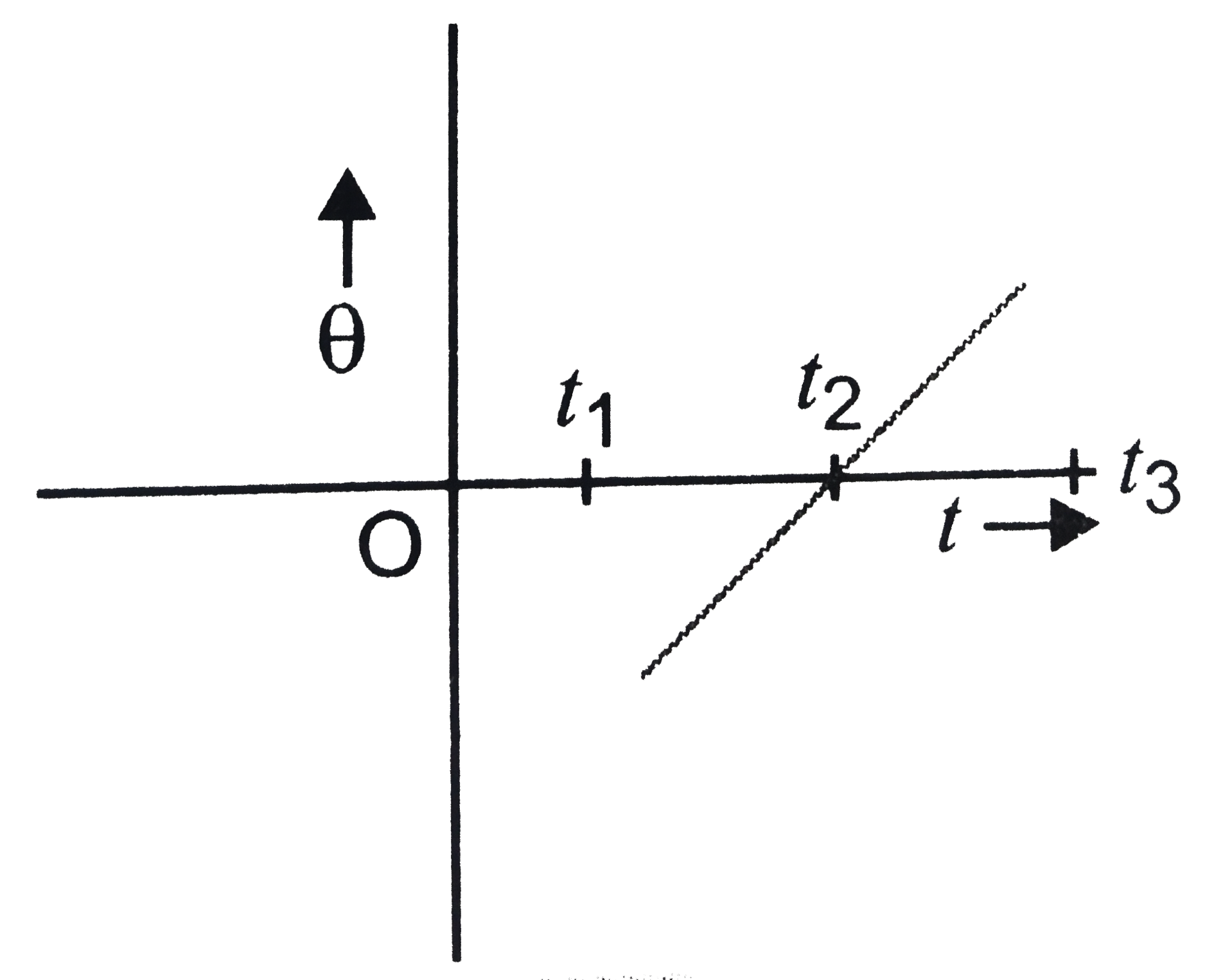
View SolutionA uniform cube of mass `m` and side a is placed on a frictionless horizontal surface. A vertical force `F` is applied to the edge as shown in Fig. Match the following (most appropriate choice) :
(a)`mg//4 lt F lt mg//2` (i) Cube will move up.
(b) `F gt mg//2` (ii) Cube will not exhibit motion.
(c ) `F gt mg` (iii) Cube will begin to rotate and slip at `A`.
(d) `F = mg//4` (iv) Normal reaction effectively at `a//3` from A, no motion.
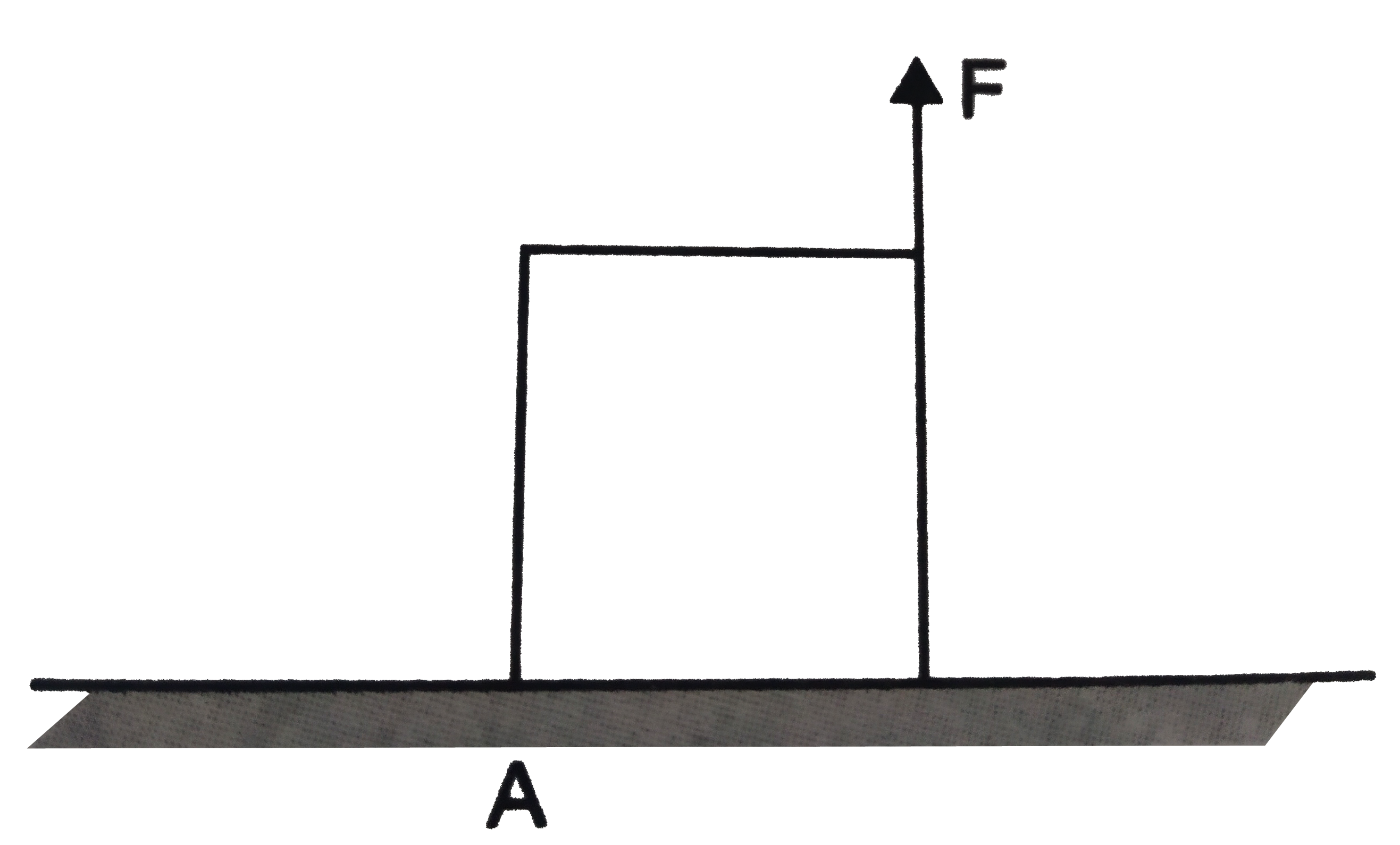
View SolutionA uniform sphere of mass `m` and radius `R` is placed on a rough horizontal surface. The spher is struck horizontally at a height h from the floor. Show that the sphere rolls without slipping with a constant velocity, when `h = 7R//5`.
View SolutionThe vector sum of a system of non-collinear forces acting on a rigid body is given to be non-zero. If the vector sum of all torques due to the system of forces about a certain point is found to be zero, does this mean that it is necessarily zero about any arbitrary point ?
View SolutionA wheel in uniform motion about an axis passing through its centre and perpendicular plus is considered to be in mechanical (translational plus rotational ) equilibrium because no net external force or torqure is reqired to sustain its motion However , the particles than constitute the wheel do experience a centripeteal the acceleration wheel being in equilibrium ?
how would you set a half wheel into unifrom motion about an axis passing throgh the centre of mass of the wheel and perpendicular to its plane ? will ypu require external forces to sustain the motion ?
View SolutionA door is hinged at one and is free to rotate about a vertical axis [Fig.] Does its weight cause any torque the axis ? Given reason for you answer.
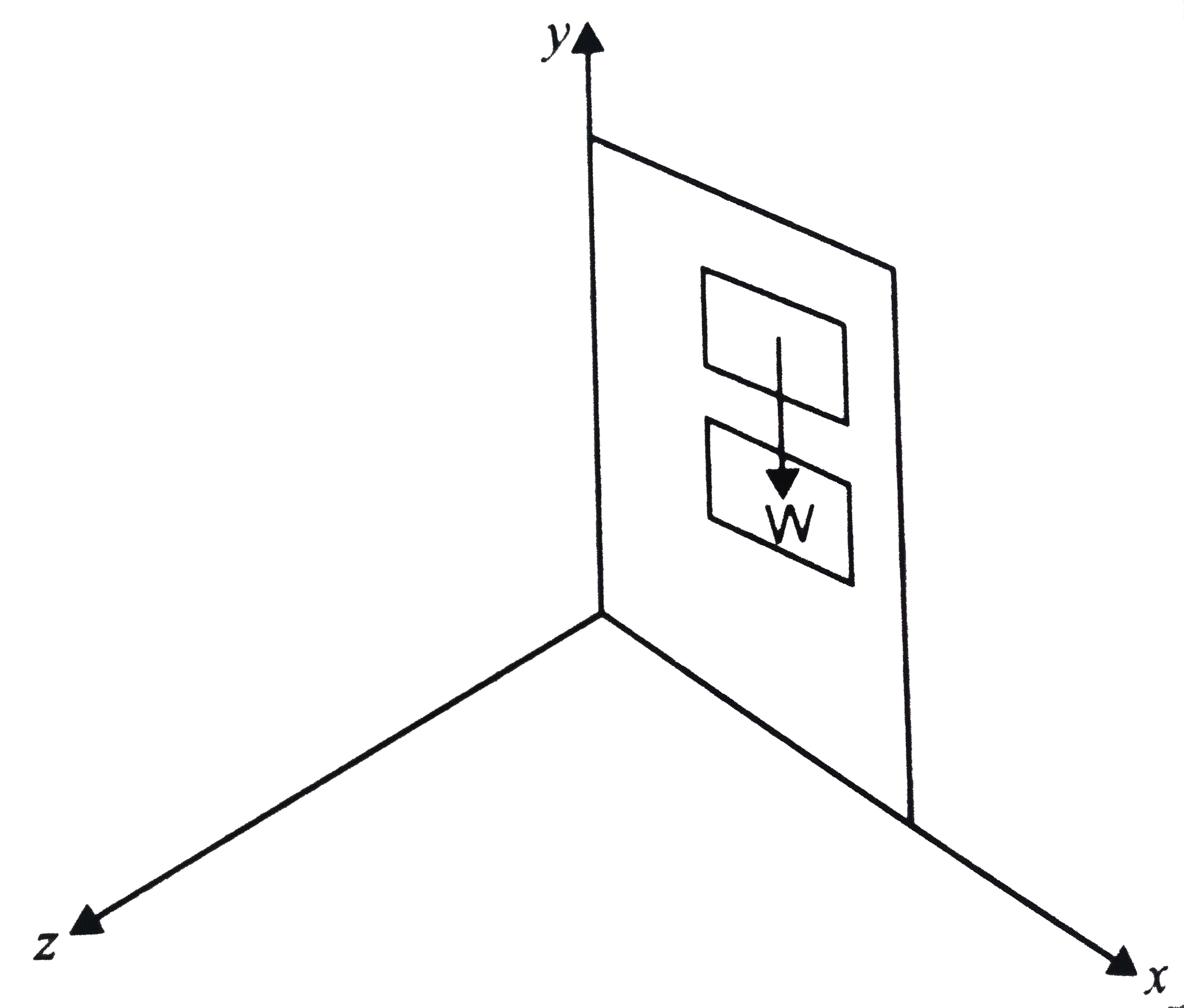
View Solution`(n - 1)` equal point masses each of mass `m` are placed at the vertices of a angular n-polygon. The vacant vertex has `a` position vector `a` with respect to the centre of the polygon. Find the position vector of centre of mass.
View Solutionthe centre of gravity of a body on the earth coincides with its centre of mass for a small object whereas for an extended object it may not ,what is the qualitaitve meaning of small and extended in this regard ?
for which of the following two coincides ? A building , a pond , a lake ,a mountain ?
View SolutionWhy does a solid sphere have smaller moment of inertia than a hollow cylinder of same mass and radius, about an axis passing through their axes of symmentry ?
View SolutionThe variation of angular position `theta`, of a point on a rotating rigid body, with time t is shown in Fig. Is the body rotating clock wise or anti-clockwise ?

View SolutionA unifrom cube of mass m and side a is placed on a frictionless horizontal surface .A vertical force F is applied to the edge as shown in figure ,match the following (most appropriate choice )
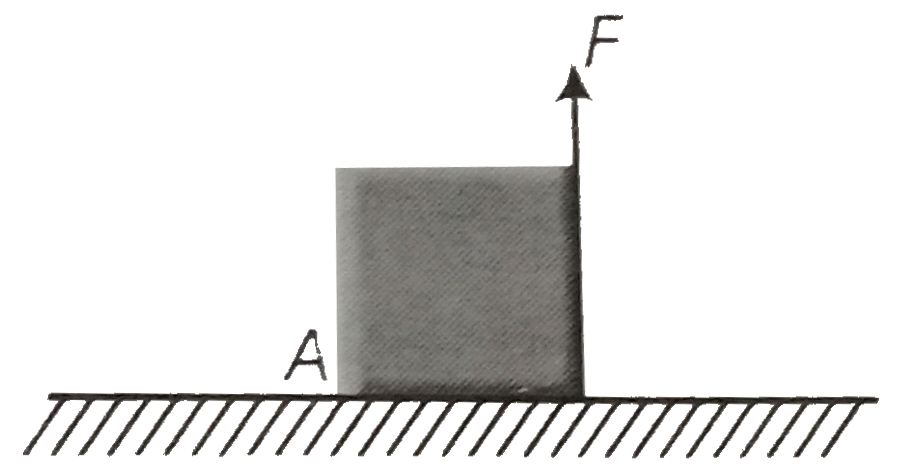
View SolutionA unifrom sphere of mass m and radius R is placed on a rough horizontal surface (figure) .the sphere is stuuck horizontally at a height h from the floor . Match the following
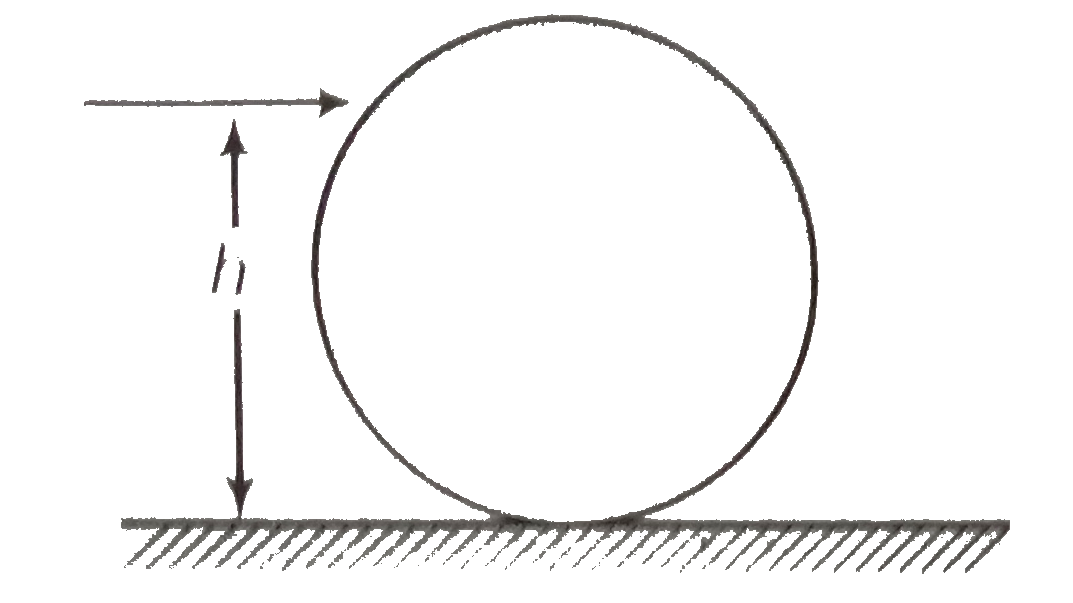
View SolutionThe vector sum of a system of non-collinear forces acting on a rigid body is given to be non-zero. If the vector sum of all the torques due to the system of forces about a certain point is found to be zero, does this mean that it is necessarily zero about any arbitrary point?
View SolutionA wheel in uniform motion about an axis passing through its centre and perpendicular plus is considered to be in mechanical (translational plus rotational ) equilibrium because no net external force or torqure is reqired to sustain its motion However , the particles than constitute the wheel do experience a centripeteal the acceleration wheel being in equilibrium ?
how would you set a half wheel into unifrom motion about an axis passing throgh the centre of mass of the wheel and perpendicular to its plane ? will ypu require external forces to sustain the motion ?
View SolutionA door is hinged at one and is free to rotate about a vertical axis [Fig.] Does its weight cause any torque the axis ? Given reason for you answer.

View Solution`(n - 1)` equal point masses each of mass `m` are placed at the vertices of a angular n-polygon. The vacant vertex has `a` position vector `a` with respect to the centre of the polygon. Find the position vector of centre of mass.
View Solution
very short answer type questions questions and complete solutions for chapter SYSTEM OF PARTICLES AND ROTATIONAL MOTION of NCERT PHYSICS (HINGLISH) of Class 11